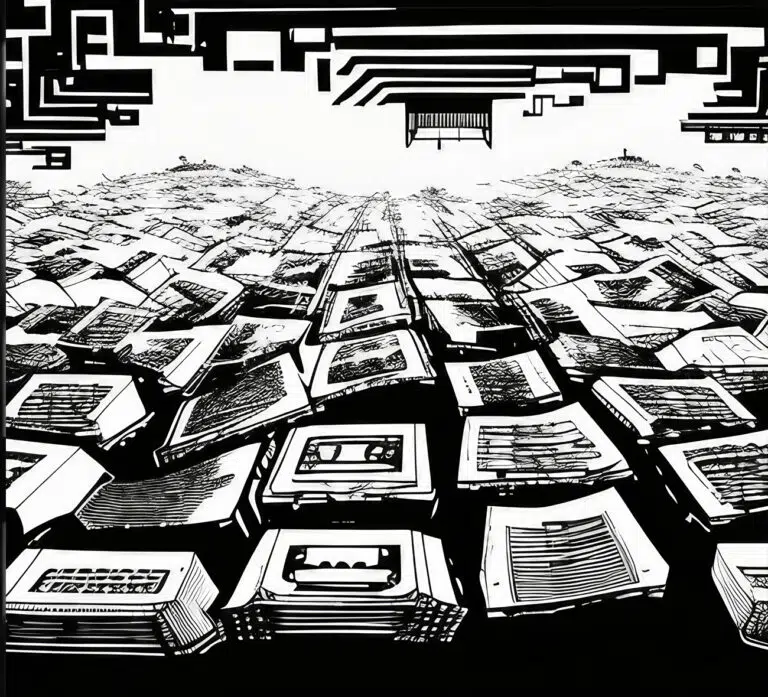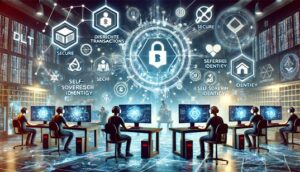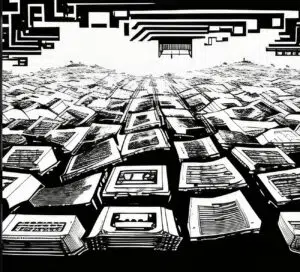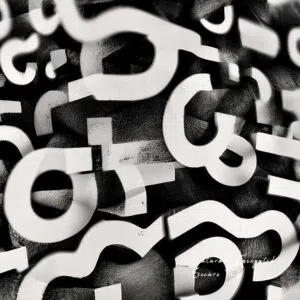In the past, education existed only within the confines of brick-and-mortar classrooms, where eager minds gathered to absorb knowledge from teachers adorned with wisdom. But as the world embraced the boundless potential of technology, the education sector embarked on a wondrous journey of evolution.
With the advent of technology, the world connected as if by magic threads, weaving a global web of knowledge and possibility. The internet, a celestial tapestry of information, became a gateway to infinite learning. Digital devices, like enchanted keys, unlocked the doors to a realm previously unexplored — the realm of online education.
Before the unexpected arrival of the pandemic, remote learning had already begun to blossom. Students, armed with digital tools and a thirst for knowledge, had already ventured into this sphere, mastering the ins and outs of virtual classrooms and online resources.
Then the pandemic happened, and it transformed the world as we knew it. Suddenly, remote learning became not just an option, but a necessity — connecting minds in the face of physical separation. During this period of significant change, non-fungible tokens or NFTs have gained relevance, aligning with the specific needs of education in a post-pandemic era. Their unique qualities of ownership, scarcity, and verification seamlessly integrate into the educational context.
The role of NFTs in education
NFTs have captivated educators and students alike. These tokens possessed a unique quality: they were one of a kind, impossible to duplicate. They have the power to transform traditional practices, from digitizing certificates to creating interactive learning experiences.
Many experts are buzzing with excitement about the role of NFTs in education. They believe that these digital tokens will usher in a significant change, sparking conversations among students as well.
NFTs bring in secure and unalterable validation for educational credentials, degrees, and certifications. Picture a world where fraudulent certificates are replaced by an unbreakable bond of trust and dependability in qualifications. NFTs create a strong link between these qualifications and unique tokens on the blockchain, eliminating the risk of fraudulent certificates. With this technology, educational institutions can ensure transparency and honesty.
Each NFT represents an individual’s achievement and serves as a lasting record of their accomplishments. It allows lifelong ownership of academic successes, empowering individuals to showcase their qualifications with confidence. These valuable tokens can be easily shared with employers or educational institutions, serving as portable symbols of achievement.
The tokenization of educational resources emerges as another transformative phenomenon in the realm of learning. Through NFTs, educators can create and distribute unique digital assets, such as e-books, lesson plans, multimedia content, and interactive simulations. These tokens can be bought, sold, or licensed, allowing educators to monetize their expertise and incentivize the creation of high-quality educational materials. Tokenization also enables educators to track the usage and impact of their resources, facilitating continuous improvement and personalized learning experiences.
NFTs have ignited a transformative spark in the art world, granting digital artists an unprecedented opportunity to claim ownership and establish value for their creations. Similarly, NFTs hold tremendous potential to empower students to showcase their creative talents and foster digital artistry within the educational ecosystem.
Students can mint and sell their digital artworks as NFTs, creating an avenue for self-expression, entrepreneurship, and financial literacy. NFTs, with their transparent and decentralized nature, pave the way for a fair ecosystem where students from all walks of life can thrive and find recognition for their unique contributions.
Gamification has long been recognized as an effective tool for engaging students and enhancing the learning experience. And now, NFTs play a crucial role in gamifying education by providing digital rewards, achievements, and collectibles.
As students embark on their educational quests, conquering milestones, solving complex problems, and mastering subjects, they can earn NFTs that represents their triumph. These tokens can be traded, accumulated, or redeemed for various benefits, encouraging healthy competition, motivation, and a sense of accomplishment among learners.
Collaborative learning intertwines with the essence of education, and NFTs can facilitate the sharing and protection of intellectual property within collaborative environments. Through NFTs, students and educators can establish ownership and attribution for their contributions to team endeavors, research papers, or open educational resources. This ensures fair recognition, encourages participation, and protects the rights of individuals in collaborative endeavors.
NFTs can also serve as a means to raise funds for educational initiatives, scholarships, or philanthropic causes. Educational institutions, foundations, or even individuals can tokenize unique digital assets or exclusive experiences, transforming them into sought-after NFTs and orchestrating auctions that mobilize resources for the advancement of education. The inherent transparency of blockchain transactions provides accountability, fosters trust, and entices donors, opening avenues to bridge financial divides within the education system.
As the journey continues, the education sector embraces the fusion of old and new, between physical classrooms and virtual spaces. In this age of transformation, NFTs stand to weave trust, validation, creativity, and opportunity. The integration of NFTs into the field of education brings forth a myriad of possibilities to enhance learning, collaboration, and recognition.






